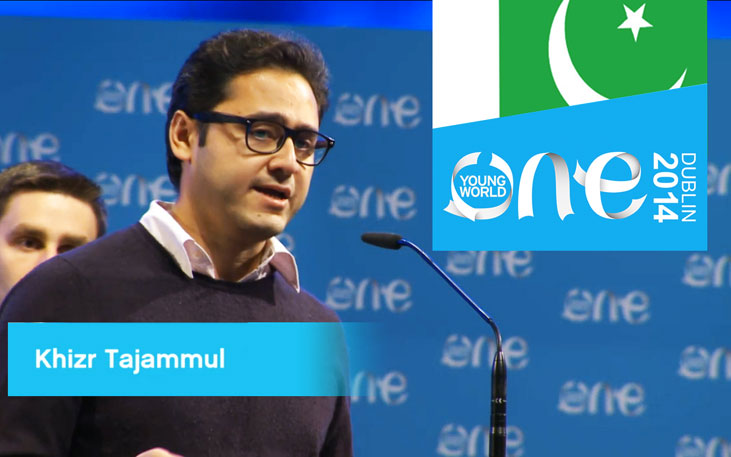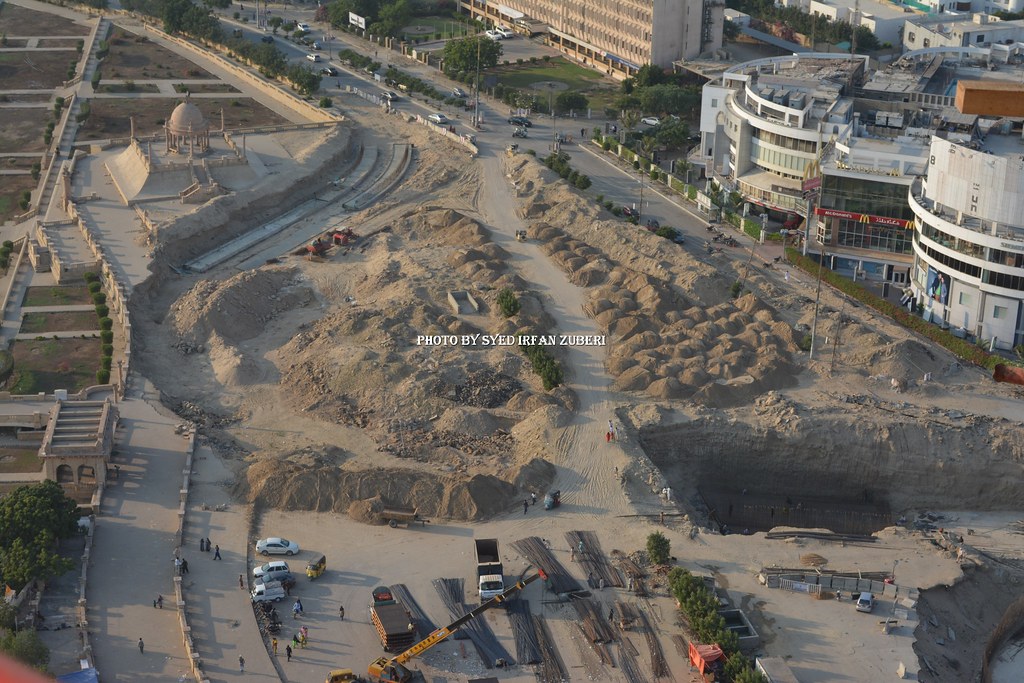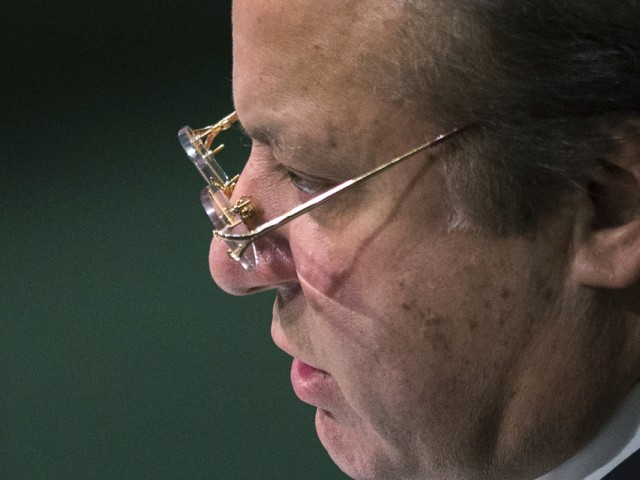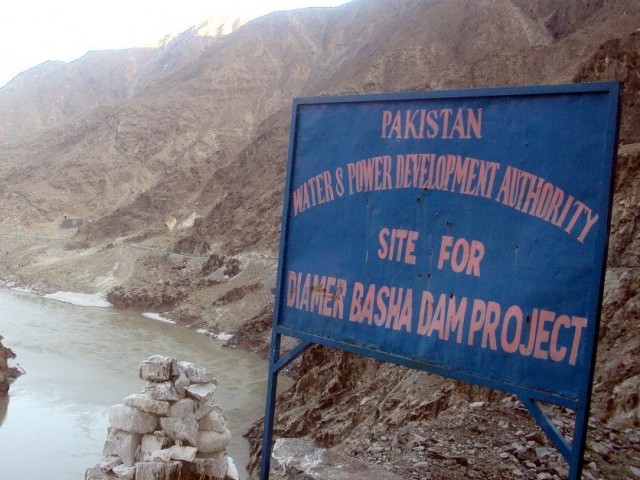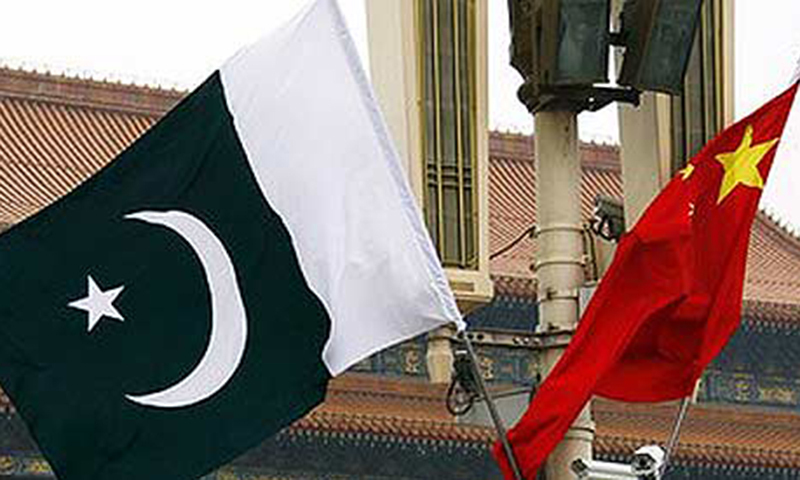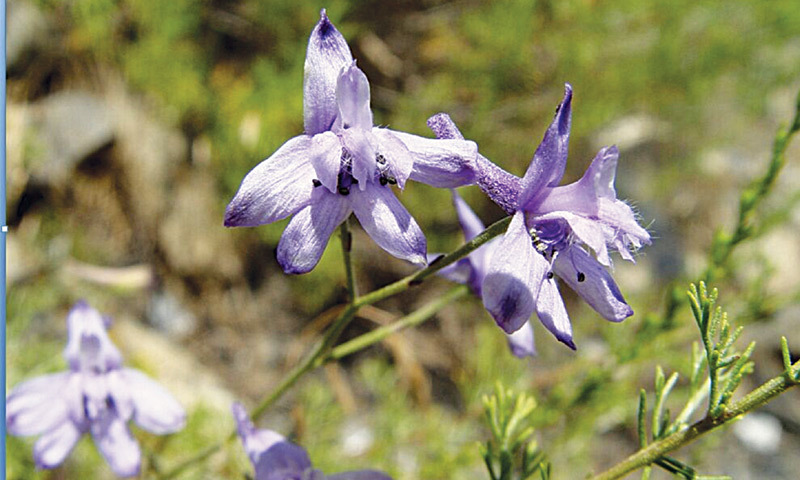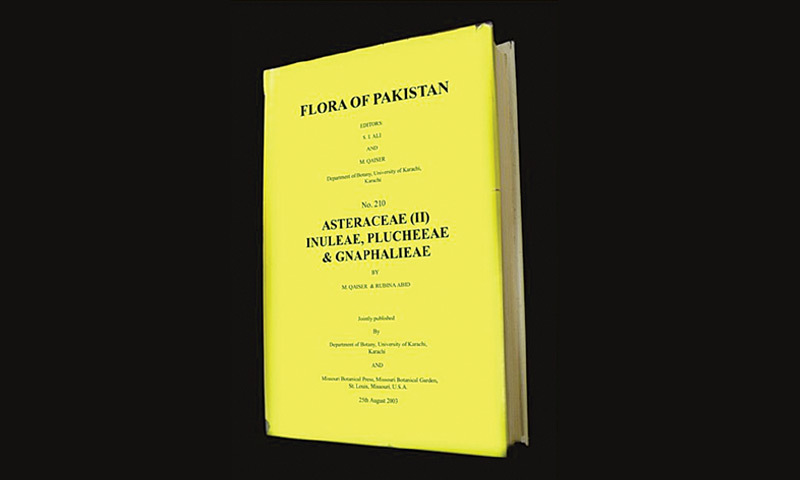Sulman Badshah
STAFF

- Joined
- Feb 22, 2014
- Messages
- 4,282
- Reaction score
- 34
- Country
- Location
Pakistan Railways: China to inject $3.5b into infrastructure development
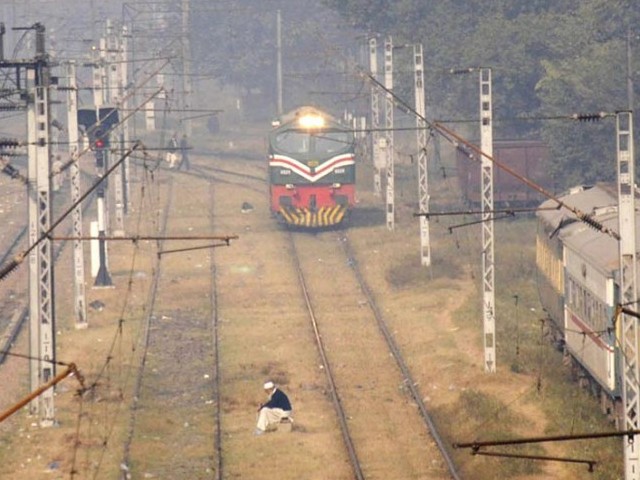
Only Chinese companies would participate in the bidding for contracts for all civil and engineering work and would earn a profit of up to 20% to 25% on their investments. PHOTO: ONLINE
LAHORE:
A 23-member delegation of Chinese technical experts, led by Meng Wenli, Chief Engineer Alignment, will come on a trip to Pakistan at the weekend to pick the areas for an investment of $3.5 billion and complete the rehabilitation and replacement of tracks from Karachi to Peshawar.
The delegation, comprising representatives of China Railway Eeyuan Engineering Group Company, would arrive on October 25 and undertake a comprehensive study of a 1,400-km rail track with the technical support of the National Engineering Services of Pakistan (Nespak) and the Pakistan Railways Consultancy and Advisory Service, said an official.

The survey will also cover 2,340 bridges and 11 tunnels from Karachi to Peshawar via Hyderabad, Bahawalpur, Multan, Sahiwal, Lahore, Gujranwala, Gujrat, Jhelum, Rawalpindi and Attock.
Initially, the visit was scheduled for May this year, but was delayed and rescheduled for the last week of October. The team will prepare a report and submit it in February next year to the governments of China and Pakistan for further deliberation and reaching agreements.
China has expressed interest in pouring about $3.5 billion into infrastructure development for the railways. The areas where the money will be injected include replacement of rail tracks over 375 km, deep screening of ballast over 1,260 km, conversion of un-manned level-crossing into underpasses at 50 places, conversion of manned level-crossing into flyovers at 250 places, realignment of 40 big curves, strengthening of 500 bridges and doubling a 438km track at various places between Shahdara and Peshawar.
“This investment is, in fact, a loan being given by China at a concessionary interest rate of 1.5% under the Pakistan-China Economic Corridor,” the official said. “It will be released by the Export-Import Bank of China after receiving sovereign guarantees from the Pakistan government.”
The average speed passenger trains could run on this rail track is in the range of 85 to 105 km per hour, but they do not accelerate above 95 km per hour.
“After the replacement of tracks, the trains will run at the maximum speed of 120 km per hour for the next 15 to 20 years,” the official said.
According to the official, the Pakistan Railways complies with the Public Procurement Regulatory Authority (PPRA) rules, but in this particular case it will not be necessary to follow the rules as an agreement is being signed between the governments of Pakistan and China.
Only Chinese companies would participate in the bidding for contracts for all civil and engineering work. They would earn a profit of up to 20% to 25% on their investments and the Pakistan government would return the loan with interest payments to the financing bank, the official added.
“The management of Pakistan Railways was also asking China to undertake a project of electric traction over 1,400 km between Karachi and Lahore, but it refused,” said another official.
Stronger ties: Russia, Pakistan to boost energy cooperation
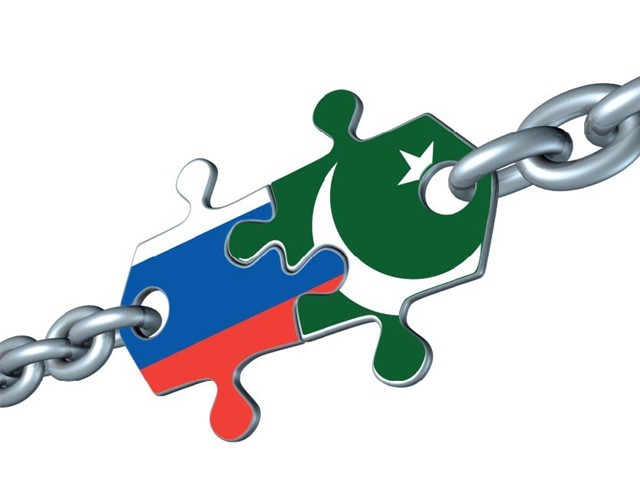
Russian Deputy Foreign Minister Morgulov Igor Vladimirovich and Pakistan’s Additional Secretary Europe Nadeem Riyaz led their respective sides in discussions that focused on a review of political, economic, parliamentary and cultural relations. DESIGN: ESSA MALIK
ISLAMABAD:
Pakistan and Russia concluded their second round of strategic dialogue with a commitment to undertake concrete steps to enhance cooperation in energy.
According to a statement issued by the foreign ministry, Russian Deputy Foreign Minister Morgulov Igor Vladimirovich and Pakistan’s Additional Secretary Europe Nadeem Riyaz led their respective sides in discussions that focused on a review of political, economic, parliamentary and cultural relations.

Possibilities were also explored for enhancing cooperation in various sectors including energy.
The statement said that discussions provided an excellent opportunity for a comprehensive exchange on entire range of bilateral issues as well as the regional situation.
“Both sides shared their resolve to undertake concrete steps to enhance their cooperation, especially in the economic sphere to strengthen the existing cordial relations,” it said.
During the meeting it was also agreed that the next round of Strategic Dialogue will be held in Moscow at a mutually convenient date.
The Russian Deputy Foreign Minister also called on Sartaj Aziz, Adviser to the Prime Minister on National Security and Foreign Affairs, Syed Tariq Fatemi, Special Assistant to the Prime Minister on Foreign Affairs and Aizaz A. Chaudhry, Foreign Secretary.
They discussed bilateral, regional and global issues of mutual interest.
Islamabad and Moscow remained bitter enemies in the 1980s when Pakistan along with other western countries backed the so-called holy warriors or mujahideen fighting Soviet troops in Afghanistan.

However, in recent years the two countries have made attempts to move beyond the cold-war era and develop a new partnership.
The foreign policy guidelines approved by the parliament in 2011 in the wake of US secret raid to kill Osama bin Laden in Abbottabad had laid special emphasis on improving ties with Russia.
Since then the two countries regularly exchange visits of their civil and military officials as part of efforts to open a ‘new chapter’ in their otherwise troubled ties.
First-ever production bonus for Balochistan
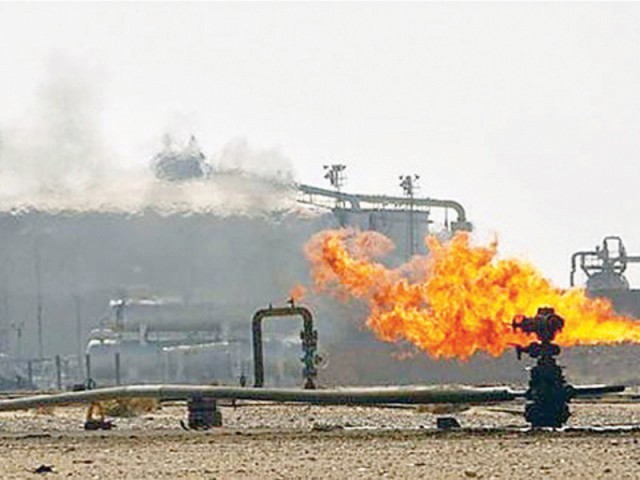
SC observed that despite Balochistan’s high share of natural resources, only a small amount was spent on social welfare in the province. STOCK IMAGE
ISLAMABAD: Thanks to the Supreme Court, Balochistan will for the first time receive $500,000 as a ‘production bonus’ from a gas producing company in the next few days.
“The Balochistan government will receive half a million dollars from the [Quetta-based] Mari Gas Company very soon,” Director Petroleum Concessions (DGPC) for the Ministry of Petroleum Nasreen Javed told the top court on Wednesday.
Other provincial governments are already receiving such ‘production bonuses’ from oil exploration and production (E&P) companies for social welfare, according to Deputy Director of the Energy Department Abdul Qudoos Khan. Balochistan, however, had been deprived of the amount in the past, he told The Express Tribune.
The Justice Jawwad S Khawaja-led three-judge bench, which heard the suo motu case on Wednesday, expressed satisfaction at the development and observed that despite Balochistan’s high share of natural resources, only a small amount was spent on social welfare in the province.
The suo motu notice was taken up on a plea by Tando Adam Tehsil Bar Association President Abdul Hakeem Khoso who pointed out that oil and gas companies were polluting the environment of Sanghar district without doing much to provide infrastructure, jobs and gas to region’s residents.
Meanwhile, the bench directed the Punjab Information Technology Board to consult relevant authorities from Khyber-Pakhtunkhwa (K-P) and develop a management information system (MIS) to monitor spending by E&P companies on social and infrastructure development.

The directive was issued after the K-P Oil and Gas Company Limited (KPOGCL) told the court that it had developed an MIS which displayed “all yearly and accumulative details of various funds received and spent on various projects in K-P on account of production bonuses, social welfare obligations and royalties.”
The court, in its December 27, 2013 judgment, had directed the DGPC and provincial government to ensure that social welfare obligations of E&P companies were monitored.
Gas revolution taking place in Pakistan


Islamabad - The Pakistan Economy Watch (PEW) on Thursday said energy mix of Pakistan is being transformed in Pakistan which will have a positive impact on every sector of the economy.
The recently-introduced LNG policy is radically distinctive which will help balance energy mix, reduce dependence on oil and transform lives of millions of people while reducing inflation, oil import bill and pollution, it said. Availability of LNG is set to grow but may not rise as fast as millions of consumers including operators of CNG stations would hope, said Dr. Murtaza Mughal, President PEW.
He said that LNG offers a clean as well as reliable alternative to coal, costly petrol, it is answer to the shortages of natural gas and its advantages as a transportation fuel are stronger than ever. Eleven countries were importing LNG in 2010 with almost zero share in transportation but today 27 nations are importing it while 42 countries would be importing it by 2020 to run industry, cars, trucks, trains and ships due to strong incentive of the price gap, he added.
Mughal said that at present, about 80 percent of the world’s demand for transportation fuels are met by petrol but share of natural gas in the global energy mix edged up to 23 percent.
Pakistani companies exhibit products in Paris to boost exports

ISLAMABAD - Twenty Three major companies of the country are showcasing their food products including rice and spices in Paris in a bid to boost their exports.
Pakistani rice and other food stuff including spices and dry fruit are at exhibition in Paris arranged under auspices of SIAL Fair which is a forum for exhibition of food stuff from all over the world, said a message received here from Paris.
Many visitors have shown their interest in the products of the exhibition which is held twice a year. Pakistani rice because of its quality and variety was of special attention for the visitors. Fourteen Pakistani companies are exhibiting rice in their private capacity.
The ambassador of Pakistan to Paris, Ghalib Iqbal visited Pakistani stalls to meet the exhibitors. He impressed upon the exhibitors to present their products in such a way that their scope of business expands from ethnic market to the international buyers. He assured them full cooperation on behalf of the embassy in order to facilitate them.
In total, 6425 exhibitors from 105 countries are participating in this fair.

Only Chinese companies would participate in the bidding for contracts for all civil and engineering work and would earn a profit of up to 20% to 25% on their investments. PHOTO: ONLINE
LAHORE:
A 23-member delegation of Chinese technical experts, led by Meng Wenli, Chief Engineer Alignment, will come on a trip to Pakistan at the weekend to pick the areas for an investment of $3.5 billion and complete the rehabilitation and replacement of tracks from Karachi to Peshawar.
The delegation, comprising representatives of China Railway Eeyuan Engineering Group Company, would arrive on October 25 and undertake a comprehensive study of a 1,400-km rail track with the technical support of the National Engineering Services of Pakistan (Nespak) and the Pakistan Railways Consultancy and Advisory Service, said an official.

The survey will also cover 2,340 bridges and 11 tunnels from Karachi to Peshawar via Hyderabad, Bahawalpur, Multan, Sahiwal, Lahore, Gujranwala, Gujrat, Jhelum, Rawalpindi and Attock.
Initially, the visit was scheduled for May this year, but was delayed and rescheduled for the last week of October. The team will prepare a report and submit it in February next year to the governments of China and Pakistan for further deliberation and reaching agreements.
China has expressed interest in pouring about $3.5 billion into infrastructure development for the railways. The areas where the money will be injected include replacement of rail tracks over 375 km, deep screening of ballast over 1,260 km, conversion of un-manned level-crossing into underpasses at 50 places, conversion of manned level-crossing into flyovers at 250 places, realignment of 40 big curves, strengthening of 500 bridges and doubling a 438km track at various places between Shahdara and Peshawar.
“This investment is, in fact, a loan being given by China at a concessionary interest rate of 1.5% under the Pakistan-China Economic Corridor,” the official said. “It will be released by the Export-Import Bank of China after receiving sovereign guarantees from the Pakistan government.”
The average speed passenger trains could run on this rail track is in the range of 85 to 105 km per hour, but they do not accelerate above 95 km per hour.
“After the replacement of tracks, the trains will run at the maximum speed of 120 km per hour for the next 15 to 20 years,” the official said.
According to the official, the Pakistan Railways complies with the Public Procurement Regulatory Authority (PPRA) rules, but in this particular case it will not be necessary to follow the rules as an agreement is being signed between the governments of Pakistan and China.
Only Chinese companies would participate in the bidding for contracts for all civil and engineering work. They would earn a profit of up to 20% to 25% on their investments and the Pakistan government would return the loan with interest payments to the financing bank, the official added.
“The management of Pakistan Railways was also asking China to undertake a project of electric traction over 1,400 km between Karachi and Lahore, but it refused,” said another official.
Stronger ties: Russia, Pakistan to boost energy cooperation

Russian Deputy Foreign Minister Morgulov Igor Vladimirovich and Pakistan’s Additional Secretary Europe Nadeem Riyaz led their respective sides in discussions that focused on a review of political, economic, parliamentary and cultural relations. DESIGN: ESSA MALIK
ISLAMABAD:
Pakistan and Russia concluded their second round of strategic dialogue with a commitment to undertake concrete steps to enhance cooperation in energy.
According to a statement issued by the foreign ministry, Russian Deputy Foreign Minister Morgulov Igor Vladimirovich and Pakistan’s Additional Secretary Europe Nadeem Riyaz led their respective sides in discussions that focused on a review of political, economic, parliamentary and cultural relations.

Possibilities were also explored for enhancing cooperation in various sectors including energy.
The statement said that discussions provided an excellent opportunity for a comprehensive exchange on entire range of bilateral issues as well as the regional situation.
“Both sides shared their resolve to undertake concrete steps to enhance their cooperation, especially in the economic sphere to strengthen the existing cordial relations,” it said.
During the meeting it was also agreed that the next round of Strategic Dialogue will be held in Moscow at a mutually convenient date.
The Russian Deputy Foreign Minister also called on Sartaj Aziz, Adviser to the Prime Minister on National Security and Foreign Affairs, Syed Tariq Fatemi, Special Assistant to the Prime Minister on Foreign Affairs and Aizaz A. Chaudhry, Foreign Secretary.
They discussed bilateral, regional and global issues of mutual interest.
Islamabad and Moscow remained bitter enemies in the 1980s when Pakistan along with other western countries backed the so-called holy warriors or mujahideen fighting Soviet troops in Afghanistan.

However, in recent years the two countries have made attempts to move beyond the cold-war era and develop a new partnership.
The foreign policy guidelines approved by the parliament in 2011 in the wake of US secret raid to kill Osama bin Laden in Abbottabad had laid special emphasis on improving ties with Russia.
Since then the two countries regularly exchange visits of their civil and military officials as part of efforts to open a ‘new chapter’ in their otherwise troubled ties.
First-ever production bonus for Balochistan

SC observed that despite Balochistan’s high share of natural resources, only a small amount was spent on social welfare in the province. STOCK IMAGE
ISLAMABAD: Thanks to the Supreme Court, Balochistan will for the first time receive $500,000 as a ‘production bonus’ from a gas producing company in the next few days.
“The Balochistan government will receive half a million dollars from the [Quetta-based] Mari Gas Company very soon,” Director Petroleum Concessions (DGPC) for the Ministry of Petroleum Nasreen Javed told the top court on Wednesday.
Other provincial governments are already receiving such ‘production bonuses’ from oil exploration and production (E&P) companies for social welfare, according to Deputy Director of the Energy Department Abdul Qudoos Khan. Balochistan, however, had been deprived of the amount in the past, he told The Express Tribune.
The Justice Jawwad S Khawaja-led three-judge bench, which heard the suo motu case on Wednesday, expressed satisfaction at the development and observed that despite Balochistan’s high share of natural resources, only a small amount was spent on social welfare in the province.
The suo motu notice was taken up on a plea by Tando Adam Tehsil Bar Association President Abdul Hakeem Khoso who pointed out that oil and gas companies were polluting the environment of Sanghar district without doing much to provide infrastructure, jobs and gas to region’s residents.
Meanwhile, the bench directed the Punjab Information Technology Board to consult relevant authorities from Khyber-Pakhtunkhwa (K-P) and develop a management information system (MIS) to monitor spending by E&P companies on social and infrastructure development.

The directive was issued after the K-P Oil and Gas Company Limited (KPOGCL) told the court that it had developed an MIS which displayed “all yearly and accumulative details of various funds received and spent on various projects in K-P on account of production bonuses, social welfare obligations and royalties.”
The court, in its December 27, 2013 judgment, had directed the DGPC and provincial government to ensure that social welfare obligations of E&P companies were monitored.
Gas revolution taking place in Pakistan


Islamabad - The Pakistan Economy Watch (PEW) on Thursday said energy mix of Pakistan is being transformed in Pakistan which will have a positive impact on every sector of the economy.
The recently-introduced LNG policy is radically distinctive which will help balance energy mix, reduce dependence on oil and transform lives of millions of people while reducing inflation, oil import bill and pollution, it said. Availability of LNG is set to grow but may not rise as fast as millions of consumers including operators of CNG stations would hope, said Dr. Murtaza Mughal, President PEW.
He said that LNG offers a clean as well as reliable alternative to coal, costly petrol, it is answer to the shortages of natural gas and its advantages as a transportation fuel are stronger than ever. Eleven countries were importing LNG in 2010 with almost zero share in transportation but today 27 nations are importing it while 42 countries would be importing it by 2020 to run industry, cars, trucks, trains and ships due to strong incentive of the price gap, he added.
Mughal said that at present, about 80 percent of the world’s demand for transportation fuels are met by petrol but share of natural gas in the global energy mix edged up to 23 percent.
Pakistani companies exhibit products in Paris to boost exports

ISLAMABAD - Twenty Three major companies of the country are showcasing their food products including rice and spices in Paris in a bid to boost their exports.
Pakistani rice and other food stuff including spices and dry fruit are at exhibition in Paris arranged under auspices of SIAL Fair which is a forum for exhibition of food stuff from all over the world, said a message received here from Paris.
Many visitors have shown their interest in the products of the exhibition which is held twice a year. Pakistani rice because of its quality and variety was of special attention for the visitors. Fourteen Pakistani companies are exhibiting rice in their private capacity.
The ambassador of Pakistan to Paris, Ghalib Iqbal visited Pakistani stalls to meet the exhibitors. He impressed upon the exhibitors to present their products in such a way that their scope of business expands from ethnic market to the international buyers. He assured them full cooperation on behalf of the embassy in order to facilitate them.
In total, 6425 exhibitors from 105 countries are participating in this fair.

